November 9, 2023
Climate
Our concern over climate is two fold:
- We want a future where people can live on this planet.
- We want that future to be built for and by working people who have not been crushed under the boot heel of capital.
We seem to be losing both battles.
It was widely reported yesterday that most Western nations are doing the opposite of what we need them to do and what they supposedly told their populations that they would be doing.
Bear in mind that these are democratic nations where policies and development are supposed to be driven by capital's interest molded by popular sentiment set by advertising. If even these countries cannot get on board with having a future world to invest in, what chance do we have elsewhere?
Well, maybe a better one, but that's a different article.
It turns out the cynics were 100% correct about the conversation that has been going on in the world since the first climate reports from the UN. That is, any talk of even mythical technology has been used by liberal politicians to not do anything. Tories, of course, want to hasten the destruction of the climate, so we will not worry about them.
No one should be surprised of course, when it comes to liberals their only focus is on not doing anything. It is in the name. But, the population and capital believed that they would do something because they said they would.
Carbon taxes, carbon credits, carbon trading, investment in green energy, subsidies to private capital to invest in windmills, low interest rates to support those investments, getting regulations out of the way, spurring innovation through massive financing grants to carbon capture and storage, and support for all manner of robot and space ship fantasies just in case.
All these, they said, were supposed to affect something.
But, the cynics are proved correct and they did not change the fundamental reality that the climate is being impacted by intense and unnecessary burning of massive amounts of fossil fuels and no one is interested in stopping that happening.
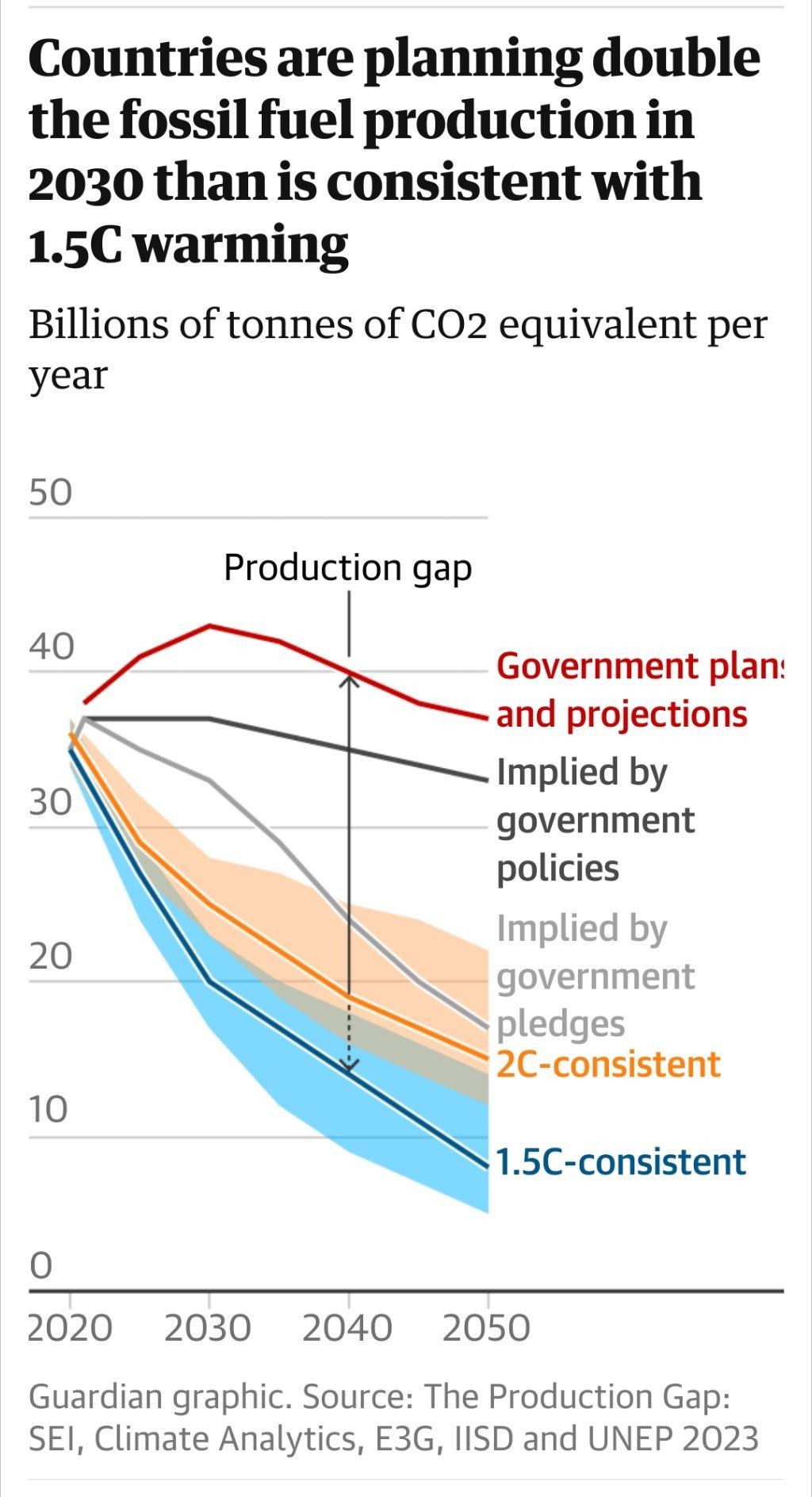
French finance findings on climate failure
A new report from the finance research unit in the French government outlines it clearly. There will be no convergence on even the ambition outlined in the Paris Agreement because of the classic "free rider" issue. That is, there is no mechanism to enforce paying the increased costs brought of climate mitigation, our economies are simply not set-up to do the right thing, and governments are uninterested in being unelected.
The report outlines that the only thing that has driven the change is crisis and war. Gas usage has been focused on reductions not because of climate, but because of the need to restrict Russian gas imports. The increased investment in renewables was driven by the subsequent energy crisis.
The need to invest in green production solutions has resulted because of a geopolitical mess with China.
When it comes to other investments, Europe is lagging behind even the standard global laggards of investing in efficiency measures such as heat pumps (a technology that should have been ubiquitous decades ago simply because of their efficiency).
Finally, the report outlines that there are three mechanisms not being deployed to get us to the scale of investment that we need to make this transition. A transition that the authors say is equivalent to the transformation known as the "Industrial Revolution". So, only as big as the largest transformation of production the world has ever seen.
Those three mechanism are:
- Price signals
- Collective norms
- Productivity gains
As classical economists, we can basically lump all these together since they are essentially a measure or statement of the same process. You cannot get "price signals" without changing "collective norms" about paying for costs of "productivity gains". We also understand that these work in concert with each other since "collective norms" are established by working peoples' relation to prices and having work to get paid enough to pay those prices—work that we likely lost in those "productivity gains".
The authors of the report essentially say that the state needs to convince people that their well-being will be impacted positively if the outcomes of investment are supported with re-allocation of their wealth to capital.
It is a long report, but the sentiment is the same as the problem we are facing in this (non-)transition to a green economy: even capital thinks that it takes a full revolution to get there, though of course not the one we all have in mind.
Time and effort
A while back I presented to a group of economists on the problem with delaying the investments in green energy. It was not that novel of an analysis. It basically said that the longer we wait the steeper the slope to get to the 2050 target. As we approach 2050, the effort needed to reach that target in total becomes higher than if we started now.
The graph also showed that because of this, all of the announcements since 2012 were really the same announcements adjusted for the fact that we have not done anything. That is, every year there are bolder announcements making politicians sound like they are more progressive, but it is actually the opposite. The announcements are exactly the same because the deadline has not moved (since it is based in some science), the only thing that has moved is that we have not implemented what we needed to and now have to spend and do more faster to reach the end.
It is like trying to get to the end of a race at the same time as everyone else, but sleeping in and missing the start and then grabbing a coffee on the way to the start line. At some point, you physically cannot get to the end of the race with everyone else.
Add to this the strange belief that you do not have to start the race because there will be a transporter device invented before the end of the race. This not invented yet "innovation" means you never have to really start it because you can just use that to get to the end.
For the climate, carbon capture is our transporter and we have not even gotten out of bed yet.
The French report essentially takes this idea and says that if the French economy were to shift, it would have to look at all production into and out of the country, accounting for all the carbon in those supply changes and shift pricing to maximize French green economic production. A massive accounting system will have to be built and a planned economic investment program to shift production internally to meet the targets it has already laid out needs to be implemented.
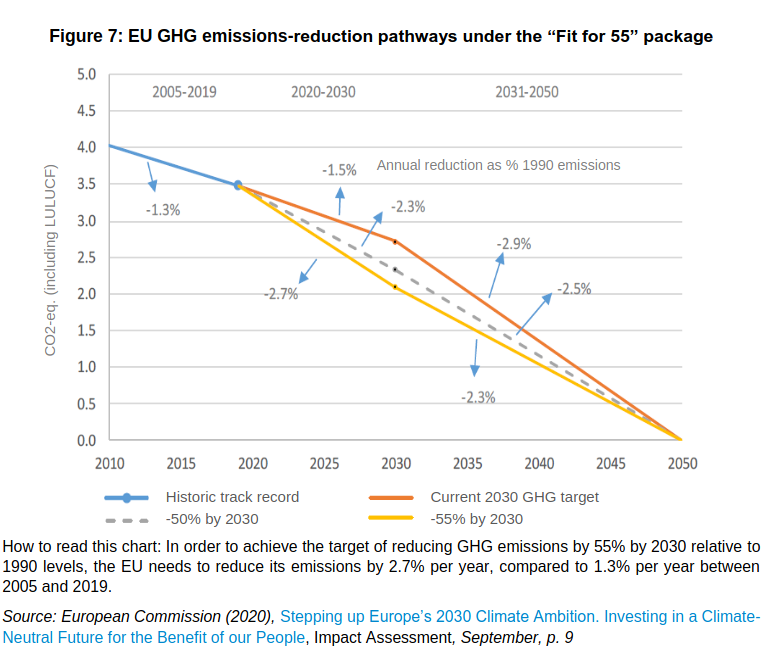
They estimate more than 2% of GDP will have to be put to this task. Just for energy transition.
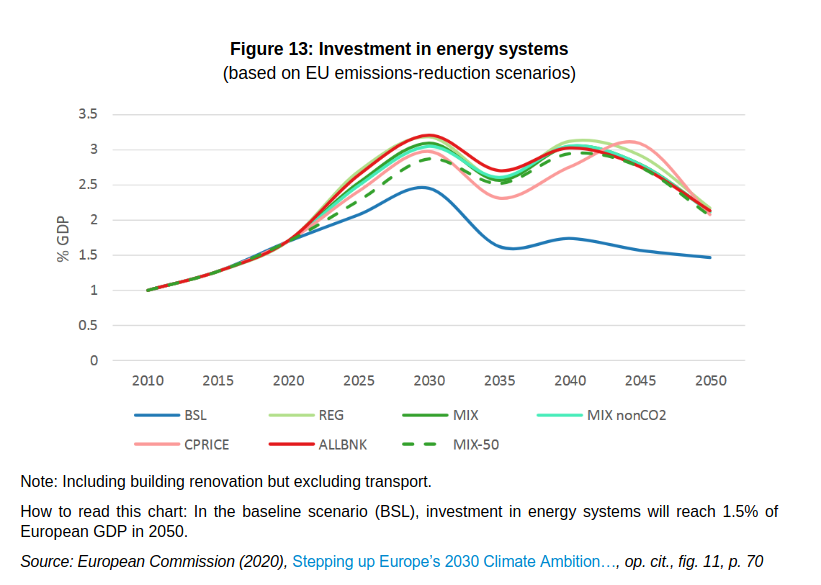
Non-energy sectors are outlined in total numbers, not per cent GDP, because they are impossibly high:
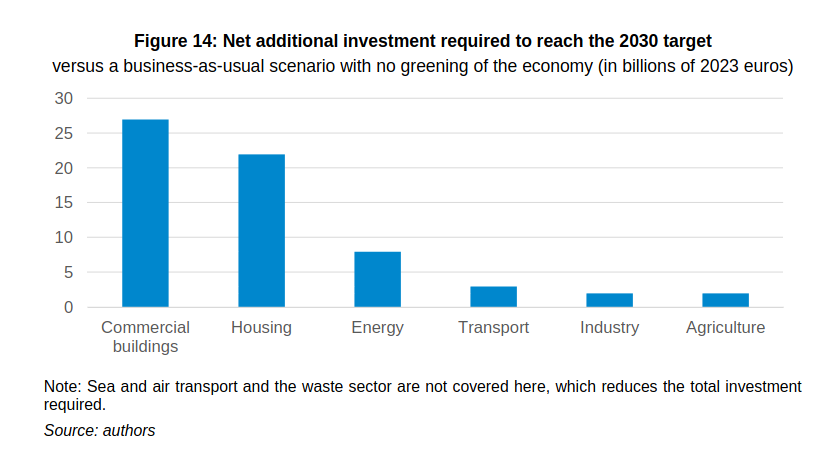
The end of the report just goes into how much this is going to cost and then essentially says (though without saying it explicitly) that it is too expensive and would seriously damage EU/French competitiveness.
It does say that the current EU responses to declining competitiveness are insufficient to stop the negative impact the economy of Europe.
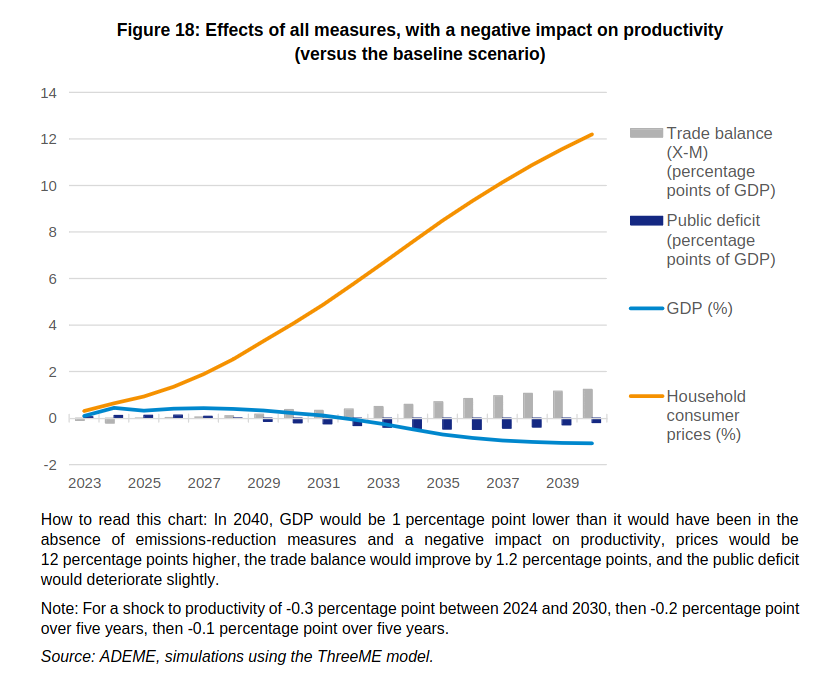
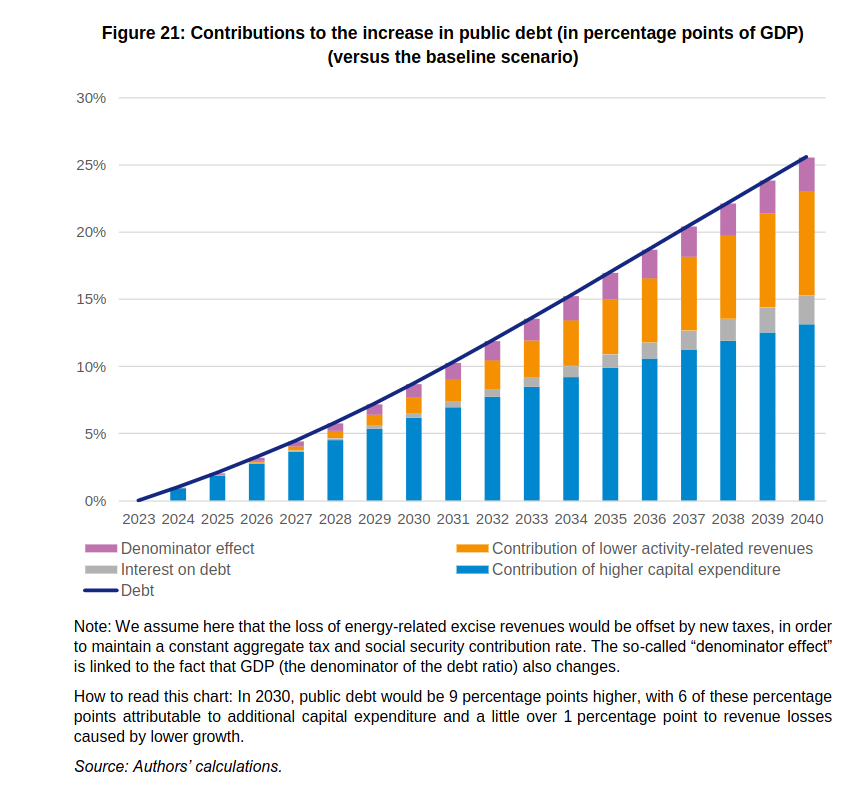
What is very clear from this and other reports looking at the costs of climate related transition that is necessary to both mitigate and limit the impact of climate change is that they are very very expensive and our political and economic systems are not, in any way, set-up to deal with it.
So, it is not surprising that governments have done not only nothing, but have tended to make things much much worse.